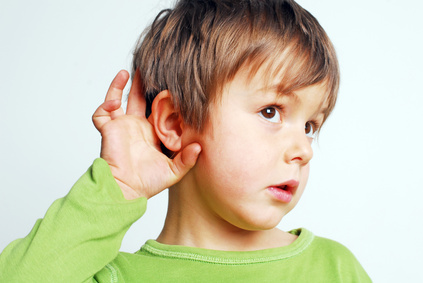NEW YORK (CBSNewYork) — Cochlear implants have been a godsend for parents of children born profoundly deaf.
While the devices can restore some level of hearing, many of these children can still fall behind in language skills.
As CBS2’s Dr. Max Gomez explained, ‘eye trackers’ help researchers understand how children learn language.
Logan Hodge’s parents were elated when a cochlear implant allowed their son to hear for the first time at 10-months-old.
There were still challenges ahead to help Logan communicate on the same level as children with normal hearing.
“We had never experienced communicating with a deaf person at all before our son was born, so it was interesting for us to learn how to communicate, and how to teach Logan how to communicate with us,” Logan’s mother Sarah said.
Researcher Derek Houston said it’s a common struggle for parents of deaf children.
To better understand how children with cochlear implants absorb information and learn new words, he designed a study at the Ohio State University Wexner Medical Center, which observes parent and child interactions from six different camera angles.
Parents present toys with different names to their children, and every detail of the child’s reaction is recorded.
“To give even more detail about that. They’re also wearing eye-tracking devices,” Dr. Houston said.
The devices help researchers understand what catches a child’s attention during conversation and how parents might be able to use that information to better communicate.
“The timing of when a parent says a label and what the child is doing, when the label is said, predicts whether or not the child will learn a word,” Dr. Houston said.
Logan’s parents use what they’re learning from the study to constantly reinforce language by doing things like narrating everyday activities.
Their hard work is paying off.
“Honestly, there are many times throughout the day that I forget that he’s deaf at all, which is just incredible,” Sarah said.
Researchers hope that this method of parent-child observation can be extended to learn more about the best ways to teach language skills to any child.
With some modifications it could help with speech development for specific groups such as children with ADHD or autism.
CBS2’s Dr. Gomez said that the sooner a deaf child receives a cochlear implant, the more likely he or she will be able to develop normal speech.

